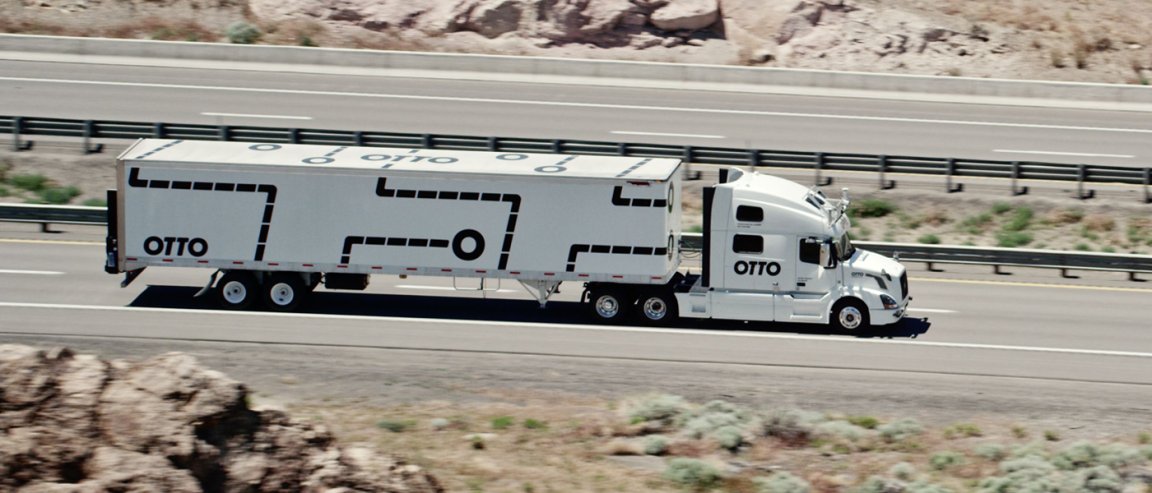
Autobot Level: Optimus Sized
Anthony Levandowski, the robot-loving engineer who pioneered Google’s venture into self-driving vehicles, quit the company to work on start-up Otto, a company focused on eliminating transportation muda (the wastes that come with transporting materials within manufacturing facilities).
The company builds sleek, minimal-design autonomous vehicles that provide efficient solutions to cut down time and resources required in a production line.
This time, however, the company is taking their creations beyond factories and out onto the road: They want to turn ordinary commercial trucks—those really big, heavy-duty freight haulers on the highway—into self-driving giants.
To be clear, they are not making a new line of trucks: They are building a kit made of a hardware that has sensors and an OS that can be retrofitted into trucks to make them self-driving. This makes it a much easier transition, and keeps in line with one of their core principles—being frugal. “Profit is the engine that lets us achieve our goals,” their website says. “If we do more with less, we can do more.”
“If you need to replace all of your trucks to get the technology on it, the rate of penetration you’ll be able to have is pretty low. Trucks last ten years, a million miles,” Levandowski says.
As a test run, Otto has retrofitted their system into a Volvo VNL 780, and would like to eventually work with Class 8 trucks.
AI Drivers Pending Legality

As of now, the kit does not aim to eliminate truck drivers completely. It still requires a human in the vehicle. Otto says the kit will provide good support, as humans can only drive for a certain amount of time and are more liable for error.
In addition, current laws do not consider AI’s as legal drivers…yet.
While Otto is on to something, it may take a while before their innovations become legally accepted and actually make it to our roads and highways.